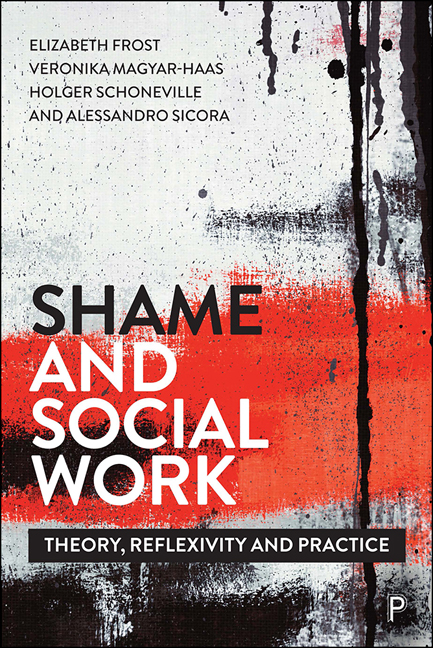5 - Interactions of Shame: Violence Against Children in Residential Care
Published online by Cambridge University Press: 10 March 2021
Summary
Introduction
Shame in conjunction with social norms is a powerful structural framing in social work. In our chapter we focus on interactions of shame and violence in residential care. These considerations are placed in the context of an increasing international debate on violence against children in pedagogical institutions. Commissions on violence against children show the dimensions of injustice in the history of residential care institutions in different countries (Andresen, 2015; Wright, 2017). At the same time, contemporary cases of staff violence in residential care are disclosed. Obviously, violence against children by professionals is not a historical, overcome issue, but rather a continuous one. We argue that violence, as well as its concealment and legitimisation, is connected with shame and shaming practices against the background of powerful concepts of how children should be. Therefore, we ask how shame is framing systematic violence against children and focus on its silencing and its disclosure.
Initially, we aim to clarify the terms violence and shame and why we think that violence against children and shame are linked by concepts on children in educational contexts. Systematic violence against children can be understood as a continuum which includes different forms and temporary dimensions of violence (Andresen and Demant, 2017). Under this term, we differentiate between the actions of adults against children which cause harm and those which are not in the interest of the child's subjective development. Violence is characterised by an instrumental use of power resources (see Arendt, 1970) that adults have in educational settings like residential care, such as physical superiority, material resources or the power to interpret children's behaviour in reports (Wolf, 2007). Different forms of violence against children have in common that adults can legitimate them by referring to widely recognised concepts of children's behaviour. Normative concepts of the ‘obedient’ ‘functioning’ child enable the shaming of children, the undermining of their resistance and the concealment and justification of violence against them. Such concepts not only work on a discursive level, they can also be materialised in pedagogical group concepts in residential care.
What makes the individual adapt to normative concepts is the emotion shame, which can be understood as an effective form of social control and disciplining. Shaming is a social technique to degrade others (see Neckel, 2009, see also Chapter 2).
- Type
- Chapter
- Information
- Shame and Social WorkTheory, Reflexivity and Practice, pp. 99 - 118Publisher: Bristol University PressPrint publication year: 2020



